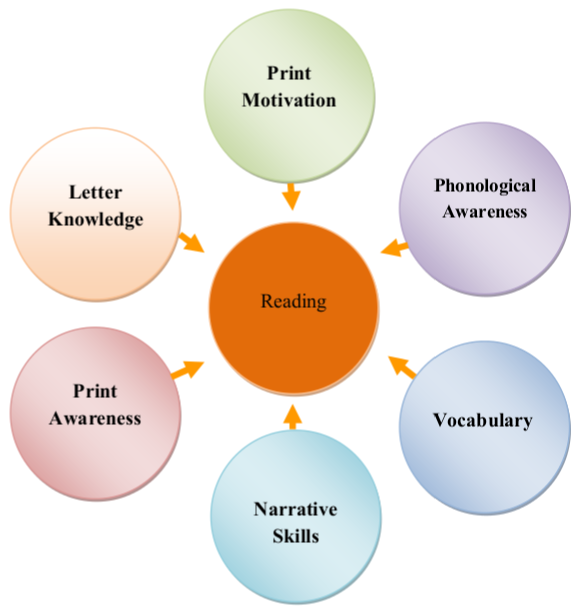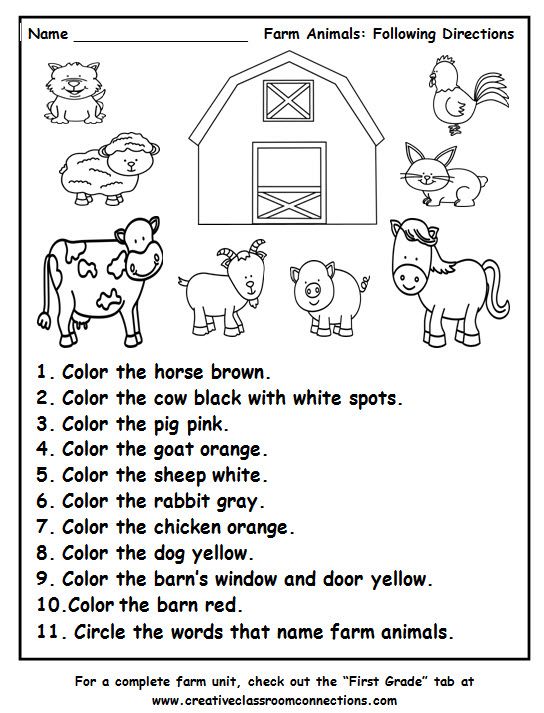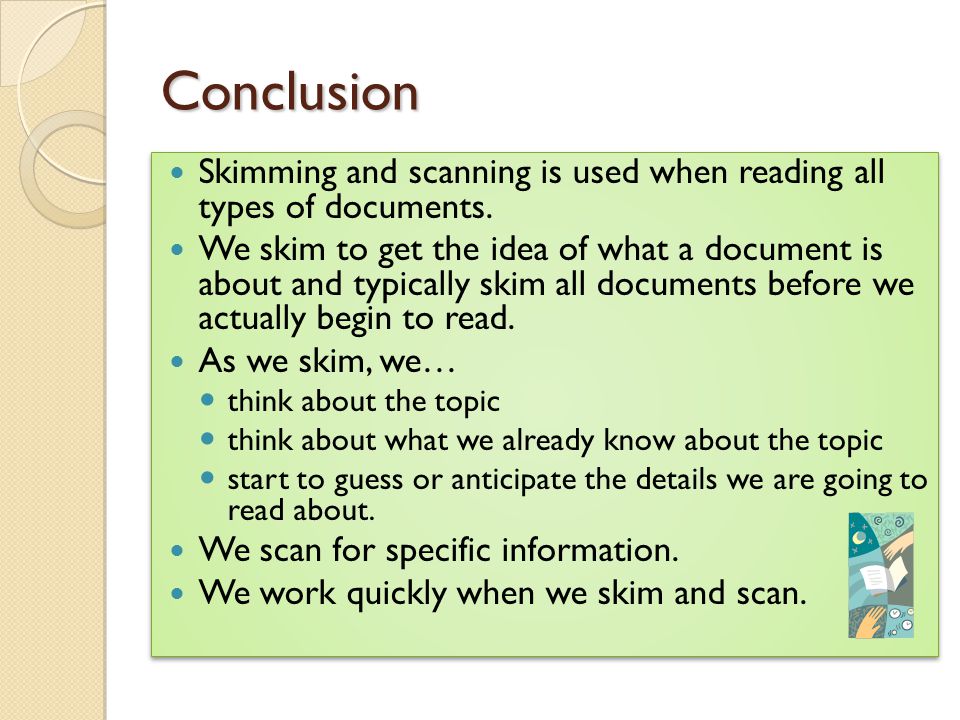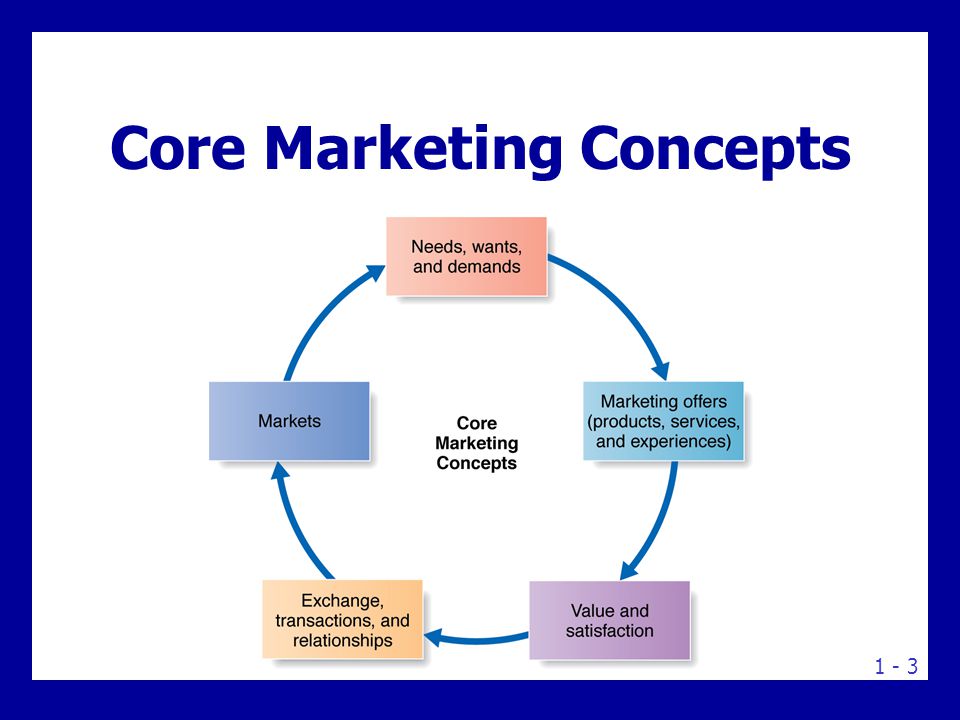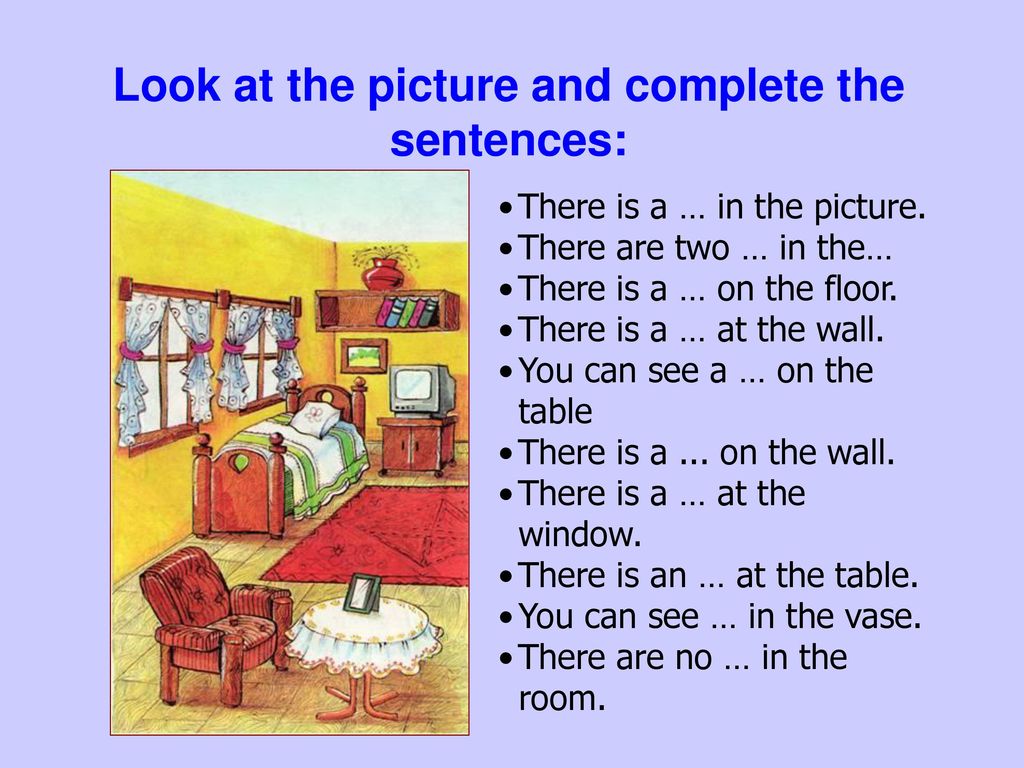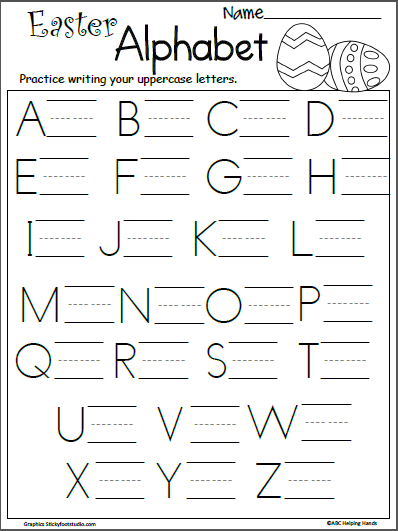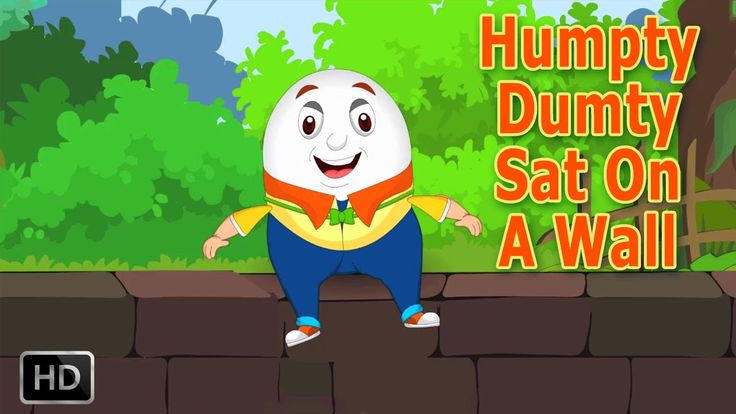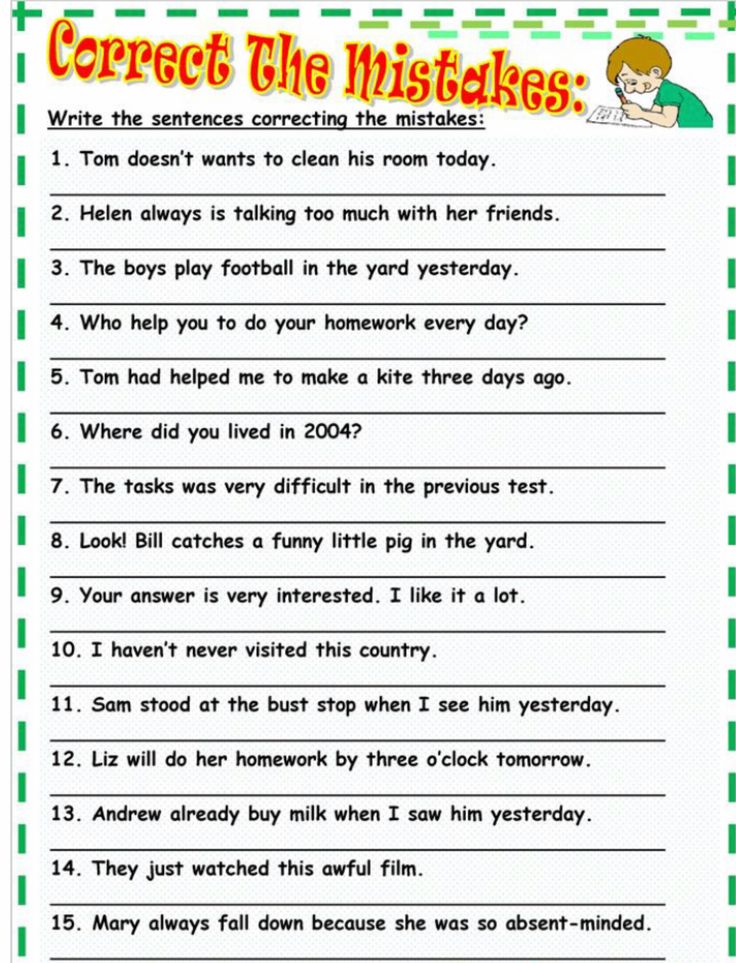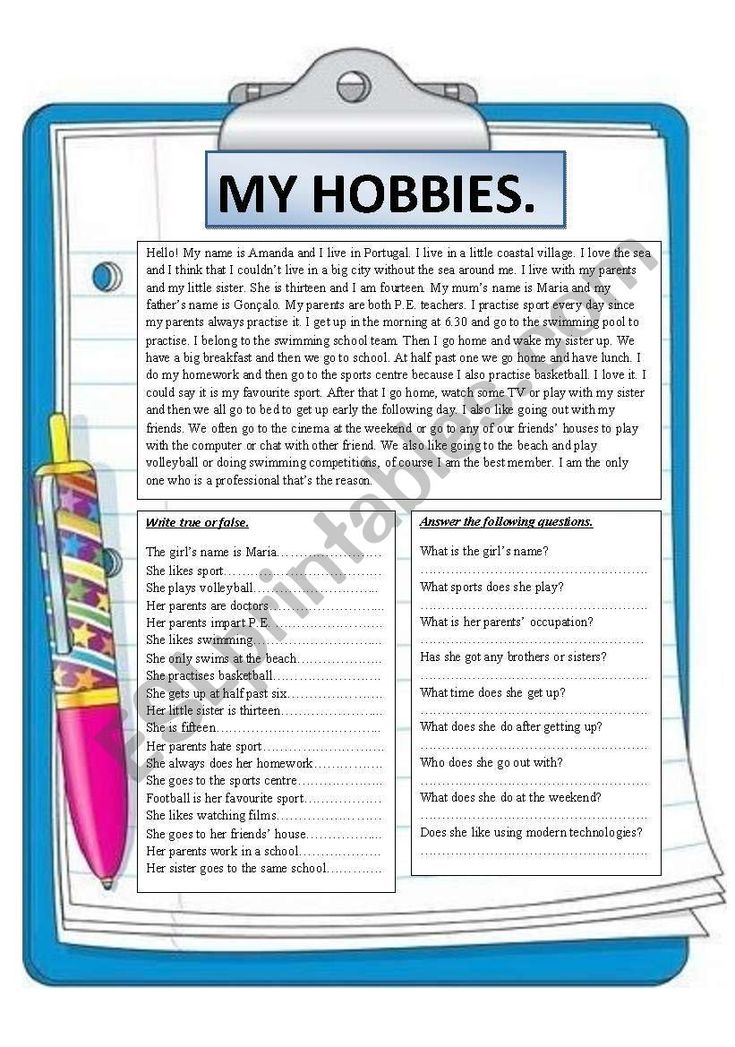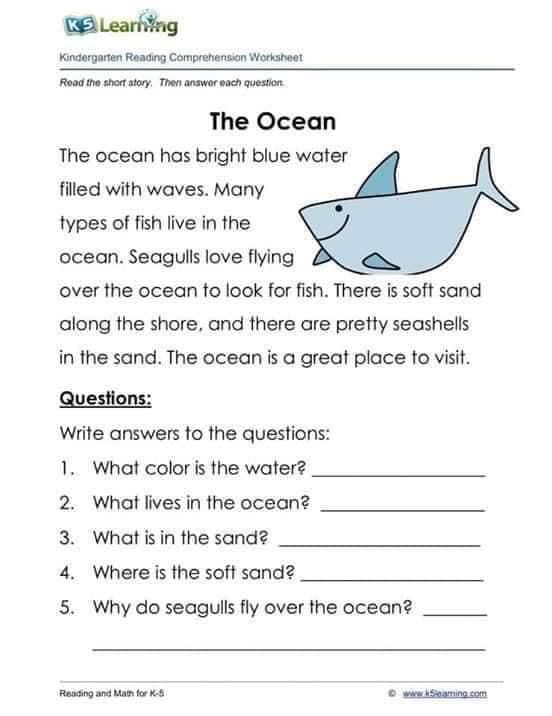What are early literacy skills
Six Early Literacy Skills – Colorado Libraries for Early Literacy
Early literacy is everything a child knows about reading and writing before he or she can read or write.
Based on research, the first iteration of ECRR identified six early literacy skills that children must know before they can learn to read.
Print Motivation
Being interested in and enjoying books
Why is it important?
A child who experiences books and reading as positive or enjoyable will be more likely to want to learn to read on their own. Motivation is important because learning to read is HARD WORK!
It’s important that we make sure our children start reading and listening to books from day one and that they have a good time with books.
What Can You Do to Help Build this Skill?
- Have fun!
- Read books you both like
- Stop (or shift gears) when it is no longer fun. Length of time is not important; enjoyment is!
Print Awareness
Noticing print everywhere, knowing how to handle a book, and knowing how to follow the written word on the page
Why is it important?
Children have to be aware of words before they can read them. They need to know how books work–the front cover, what’s upside down, which page to start on, how to look from left to right.
When kids are comfortable with books, from knowing how to open a book to understanding what those black squiggles are, they can concentrate on starting to read the words.
What Can You Do to Help Build this Skill?
- Read board books that your child can handle on his/her own; let him/her turn the pages as you read together.
- Sometimes point to the words as you read.
- Talk about print even when you are not reading together. Look for letters and words on signs, labels, and lists.
Letter Knowledge
Knowing that letters are different from each other, knowing letter names and sounds, and recognizing letters everywhere
Why is it important?
To read words, children have to understand that a word is made up of individual letters.
What Can You Do to Help Build this Skill?
- Look at and talk about different shapes (letters are based on shapes).

- Play “same and different” type games.
- Look at “I Spy” type books.
- Notice different types of letters (“a” or “A”) on signs and in books.
- Read ABC books.
- Talk about and draw the letters of a child’s own name.
Vocabulary
Knowing all kinds of words
Why is it important?
It’s much easier to read a word when it’s a word you already know. Children with bigger vocabularies have an easier time when they start to read, since it’s much easier for them to make sense of what they’re sounding out.
What Can You Do to Help Build This Skill?
- Encourage children to learn their native or home language first; this makes learning another language (speaking and reading) easier later.
- Talk with children in positive and conversational ways; commands and “no’s” do not encourage language development.
- Carry on lots of conversations with children.
- Explain the meanings of new words.
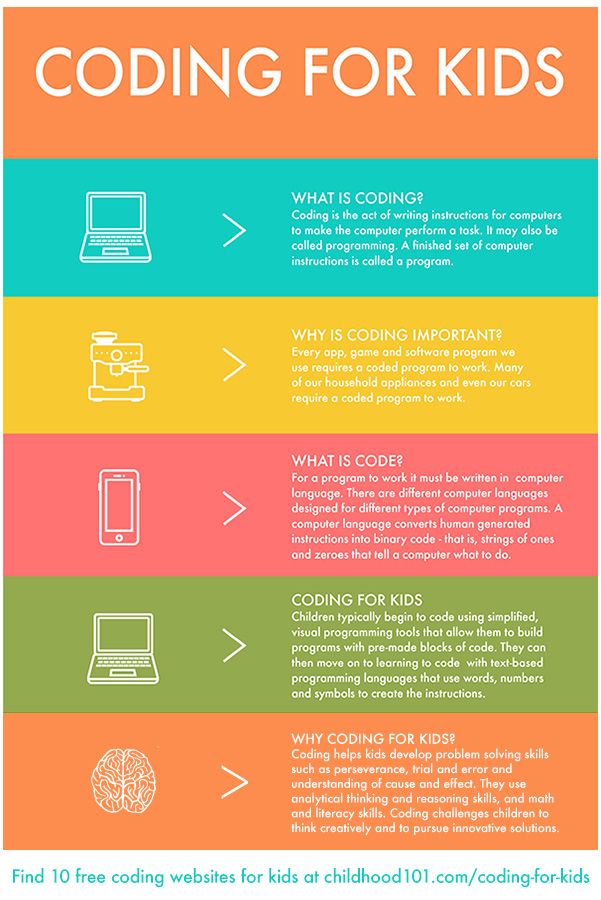
- Read books! Picture books use a different vocabulary than casual spoken conversation.
Phonological Awareness
Hearing and playing with the smaller sounds of words
Why is it important?
Children who can hear how words “come apart” into separate sounds will be more successful at “sounding out” words when they start to read.
Knowing when two words rhyme, recognizing words that have the same beginning or ending sounds, and identifying syllables are all examples of phonological awareness.
What Can You Do to Help Build This Skill?
- Sing songs; most break words up into one syllable per note. Reading works with syllables also.
- Recite rhymes; rhymes depend upon ending sounds.
- Play with tongue twisters.
- Pick a sound for the day. Notice it at the beginning of words and at the end of words.
Narrative Skills
Describing things and events, telling stories, knowing the order of events, and making predictions
Why Is It Important?
When children can describe something or retell stories, it shows that they are comprehending what they are reading.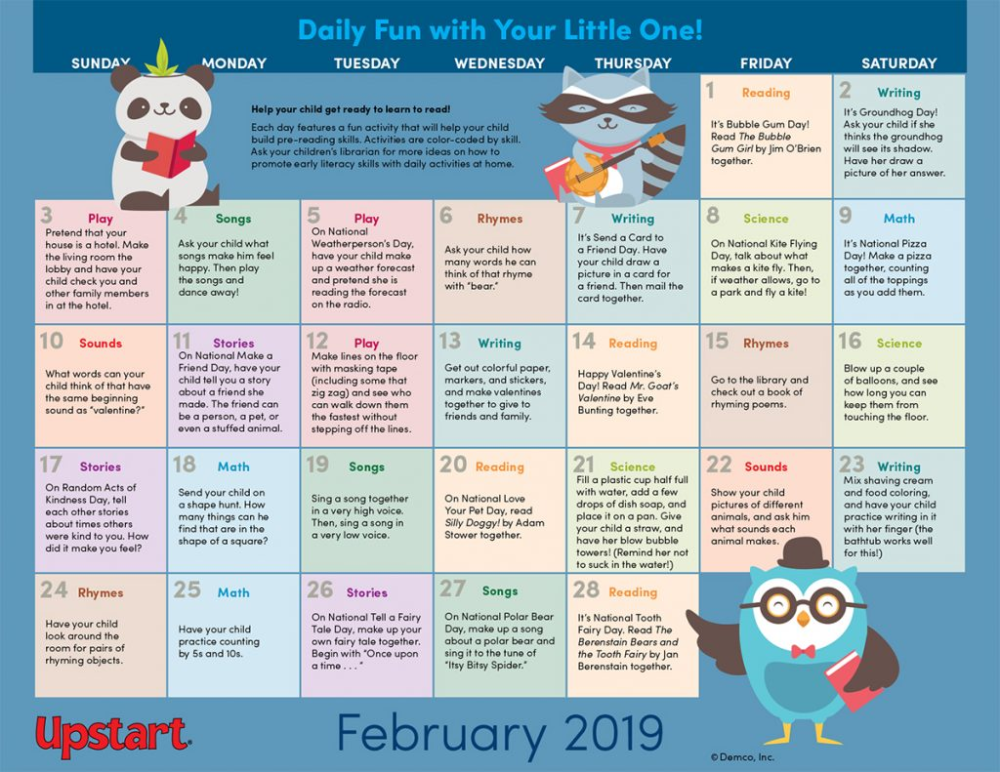 Understanding what they’re reading is crucial to helping them stay motivated to keep reading.
Understanding what they’re reading is crucial to helping them stay motivated to keep reading.
What Can You Do to Help Build This Skill?
- Ask open-ended questions that encourage conversations rather than yes/no or right/wrong answers.
- Talk about your day and its series of events.
- Mix up the events in a story; make it silly!
- Guess what comes next—or come up with a different ending.
- Read stories without words; they really help focus on this skill.
- Name objects, feelings, and events.
17 Early Literacy Skills and How to Build Them
- Share
Early childhood is the best time to begin building early literacy skills through play.
Children must develop certain skills prior to learning to read in order to build a good foundation on which to learn formal skills.
Here’s some info on what early literacy is and how to develop it in 3-5-year-olds; 17 early literacy skills for preschoolers; and 50 ways to develop these pre-literacy skills.
You can start helping your children to build pre-reading skills from a very early age. In fact, when you answer your babies by babbling back to them, you are already teaching communication and language.
Early literacy is a combination of certain skills and knowledge to help children learn to read. It includes being aware of both language and writing skills.
It involves understanding the process and purpose of writing. Early literacy also involves developing listening comprehension, an awareness of print, and phonological awareness.
With time and exposure to books and language, children start to understand that phonemes (sounds) and graphemes (symbols) make up reading.
Children will also develop excitement and an interest in books, and a motivation to learn to read. This is a crucial step in the process, or else teaching them to read will not be meaningful.
Early Literacy Skills ListChildren need to develop skills such as visual literacy, visual and auditory discrimination, and many more that aid in their progression throughout school.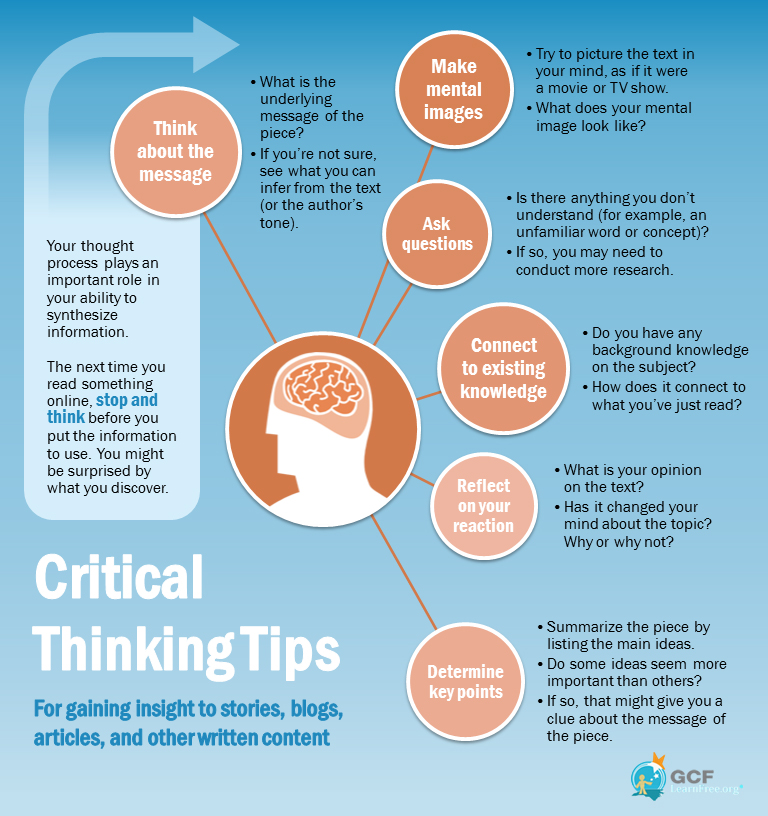
Here is a brief explanation of each skill your children should start to develop early on.
1. Visual Memory
Visual memory is the ability to remember what has been seen – important for learning sight words and letter formation and combinations.
2. Visual Discrimination
Visual discrimination is the ability to tell differences and similarities – especially in letters such as b and d, or similar words such as bad and dad.
3. Auditory Discrimination
With auditory discrimination, kids will be able to hear the differences and similarities in sounds and words.
4. Retelling a Story
Once you read or tell a story to your children, they need to be able to retell the story back to you. They may be able to retell the main idea, or the beginning, middle, and end of the story, not necessarily all the little details.
5. Predicting Sequence
As a story is being told, kids should be able to predict or guess what will happen next and put events in sequence.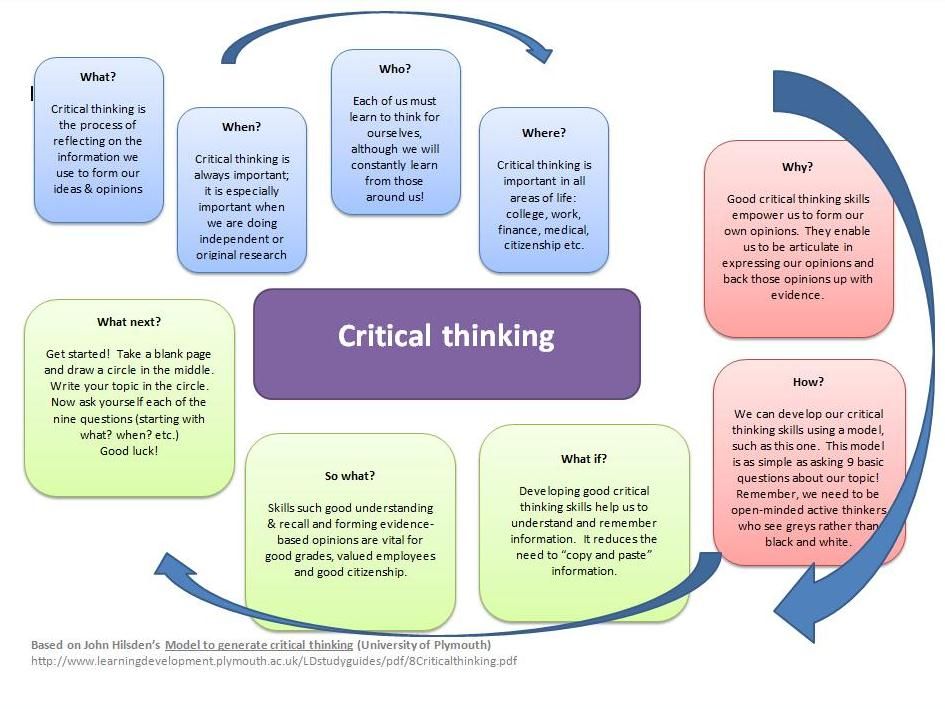
6. Cause and Effect
Cause and effect is the knowledge about why something happens and what action led to the consequence. It can be developed very early on.
7. Picture Reading
This occurs when a child can read a story and understand it just by looking at the pictures. It also includes answering questions related to the story by only referring to the pictures.
A child can learn to deduce from the information in pictures. For example, even though the text does not say what time of day it is, the image suggests it is daytime since the sun is shining.
8. Visual Literacy
Visual literacy is the ability to understand and make meaning of information in the form of an image.
9. Matching
Matching is a skill most children are really good at from early on if they play matching games. It involves finding pictures or concepts that are similar to one another.
Get your own matching cards by downloading the FREE set of printables at the end of the post.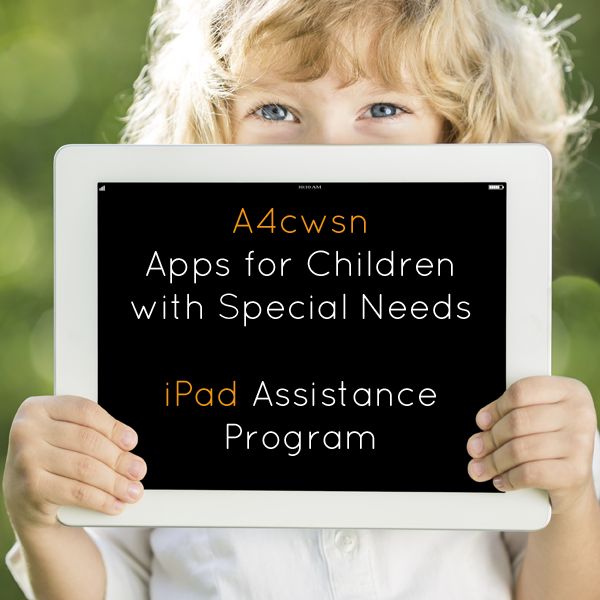
10. Focusing on Detail
This skill will help children to focus on smaller, less obvious details.
11. Sound Awareness
Sound awareness involves hearing and interpreting sounds. It includes listening for sounds, identifying sounds, telling sounds apart and more.
12. Rhyme Awareness
Rhyme awareness is when a child can recognize what sounds and words rhyme. They also learn to say rhyming words.
13. Letter Knowledge
Children should be exposed to letters early on. Playing with physical letters is the best way to teach letter formation in a practical way.
Learning how to form letters on a worksheet is part of formal reading and writing education and is not necessary during the early years before fine motor skills are properly formed.
14. Name Recognition
This is an exciting skill as a child can look at letters on a piece of paper, read and recognise their own name.
15. Pattern Recognition
Pattern recognition is when children can clearly see a pattern.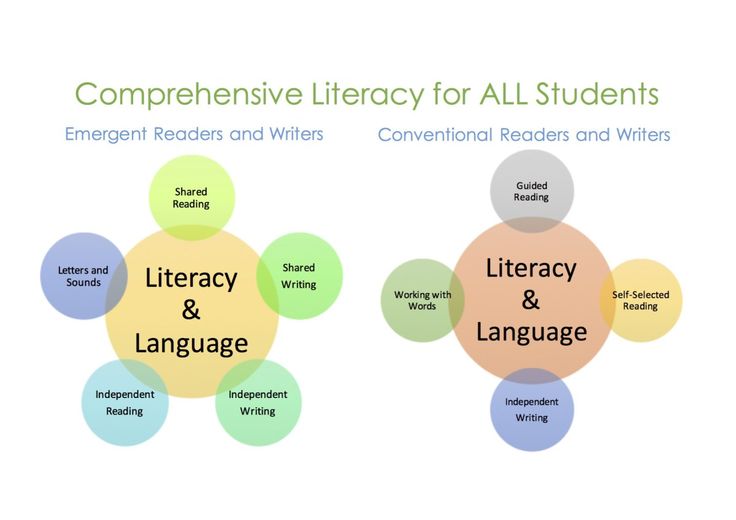 They can see shapes and the relationship between them and can even predict the missing piece in the pattern.
They can see shapes and the relationship between them and can even predict the missing piece in the pattern.
16. Phonological Awareness
Phonological awareness is when a child can hear specific sounds within a word. It involves hearing sounds, breaking up sounds and putting them back together again.
17. Spatial Orientation
Spatial orientation is when children understand how their body functions in space. When they can orientate themselves, they can later apply this skill when reading and writing – for example, by spacing letters on a page.
Learning to ReadLearning to read is a complex process for young children that begins when a child is little. It is not a natural learning process, like speaking, but one that must be taught.
If you focus on building pre-reading skills through play during the early years right up to kindergarten, your children will find it much easier to learn the sounds and letters and start formal reading when the time is right.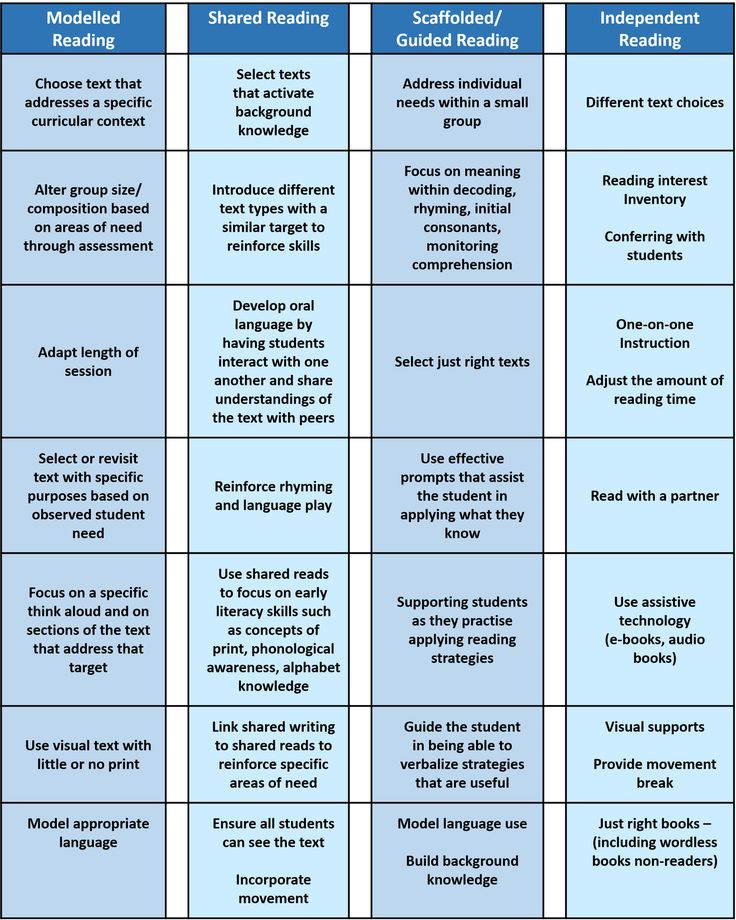
Reading is not the only literacy skill. Literacy also involves writing, communicating and working with language for different purposes.
Emerging Literacy Skills in 3-4-Year-Olds
Here are some of the typical signs you will start to see when your 3-4-year-old is developing their literacy skills.
- Has one or two favourite books or rhymes.
- Points out to you when you make an error in their favourite story.
- Enjoys new stories and asks lots of questions.
- Can sequence the events of a story.
- Enjoys listening to bedtime stories.
- Knows the letters of their own name.
- Can ‘write’ by scribbling.
- Can find a book when asked.
Emerging Literacy Skills in 4-5-Year-Olds
Here are some signs you will start to notice when your 4-5-year-old is developing their literacy skills.
- Knows their favourite book by its name.
- Knows a section of their favourite book.
- Prefers one book over another.
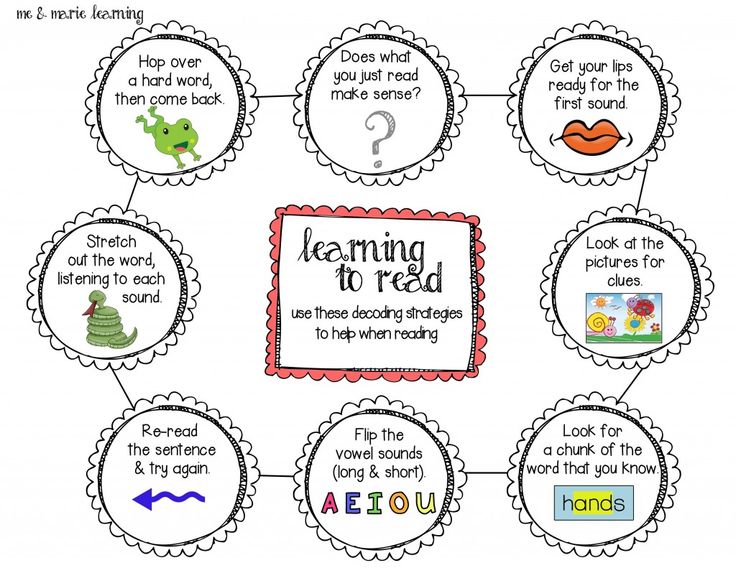
- Has a certain reading routine they follow at home and school.
- Knows the purpose of reading.
- Understands that the story remains the same.
- Talks about the story sequence.
Here are some ways to help children develop those crucial pre-literacy skills. They are easy ideas you can incorporate daily to make sure they develop those skills necessary for reading and writing.
- Have frequent conversations with your children.
- Sing songs.
- Read stories.
- Ask children to retell a story.
- Learn fingerplays.
- Create a book corner in your children’s bedroom.
- Play language games.
- Model a love for books by also reading books yourself.
- Make up your own story.
- Point out road signs while driving.
- Ask children to identify the author and illustrator of each book.
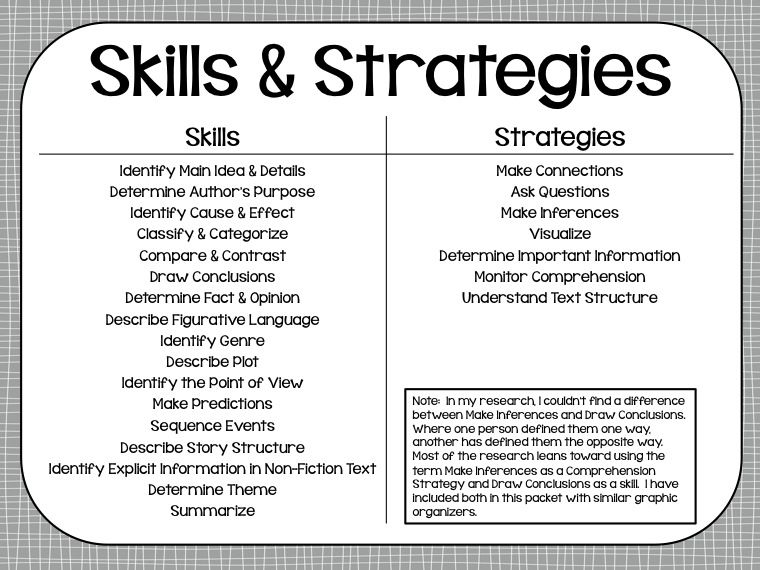
- Bake cookies in the shape of different letters.
- Sing the alphabet song.
- Have children mimic you as you say the sounds of each letter.
- Make “listen to the sound” boxes for each letter.
- Play a musical guessing game.
- Clap to different rhythms and songs.
- Play an auditory story or read a book out loud, then discuss.
- Ask questions about the stories you read.
- Make up a story with a beginning, middle and end.
- Point to parts of a word and ask what the sound is.
- Do the Hokey-Pokey Dance.
- Play Simon Says by only using body parts.
- Paint rocks with each letter of the alphabet.
- Play a matching game.
- Go to the library to get new books regularly.
- Circle the differences between two pictures.
- Show children a picture. Come up with a story about that picture.
- Put labels on common household items.
- Have children write their names on each picture they draw.

- Have them create a storybook with pictures and words.
- Let kids tell you a story from the pictures in a book.
- Make letter boards.
- Play games involving letters and their sounds.
- Write a letter to a family member.
- Play ‘shop’ and have your children write out receipts.
- Play with foam or plastic alphabet letters.
- Say a sound and have children guess the correct letter and vice versa.
- Complete an alphabet or word puzzle.
- When making crafts, have kids read step-by-step instructions.
- Make up your own rhyming song together.
- Sing nursery rhymes.
- Write letters in a tray of salt.
- Play a rhyming game.
- Read instructions out loud to show their importance.
- Connect dots to make up letters and words.
- Write words on the fridge using magnetic letters.
- Make a sensory box filled with items that begin with the same letter. Then, your children must say each item.

- Play scrabble with your kids using easy words.
- Tell a story without an ending, then have children make up the end.
These are just a few simple ways you can help develop those vital early literacy skills. Find time to do these simple activities daily. After a while, they will become a natural part of your daily schedule.
By focusing on these kinds of activities, kids will be able to read and thrive when they begin school.
Get FREE access to Printable Puzzles, Stories, Activity Packs and more!
Join Empowered Parents + and you’ll receive a downloadable set of printable puzzles, games and short stories, as well as the Learning Through Play Activity Pack which includes an entire year of activities for 3 to 6-year-olds.
Access is free forever.
Signing up for a free Grow account is fast and easy and will allow you to bookmark articles to read later, on this website as well as many websites worldwide that use Grow.
- Share
Early literacy: birth to age six
Reading aloud to your child every day increases his brain's ability to comprehend language, develops his literacy skills, and is the single most important thing you can do to prepare him for learning to read.
Children prepare to read long before they enter school: Early literacy is all that children know about reading and writing before they can actually read and write. Early literacy is the baby who chews on a book, the toddler who wants to have his favorite book read over and over again, and the preschooler who "reads" you a story by heart. nine0003
Early literacy skills begin to develop in the first 5 years of life. We used to think that a child's successful reading skill depended on the "right" first grade teacher. We now know that your child's chance of success in first grade depends on how much they learned about reading before they entered school.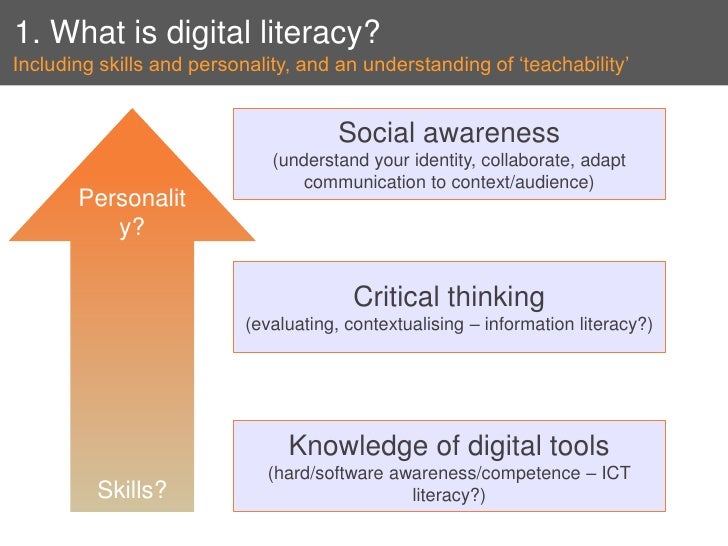 Your child's early exposure to books and language lays the foundation for success in learning to read.
Your child's early exposure to books and language lays the foundation for success in learning to read.
Early literacy is not "learning to read". nine0003
You have heard many times that you are your child's first and best teacher. And it is true. But your task is not to formally "teach" reading. Your child will learn to read at school. The most important thing you can do to promote early literacy is to create an atmosphere that is fun, verbal and stimulating, not school-like. The focus should not be on learning, but on the pleasure you get with your child – give your child plenty of opportunities to talk and be heard, to read and listen when read to, to sing and listen to being sung. nine0003
There is no need for any memorization, text and picture cards, workbooks or exercises. Children exposed to an interactive rich educational environment full of enjoyable language learning opportunities will develop early literacy skills.
You are the key to your child's success in learning to read.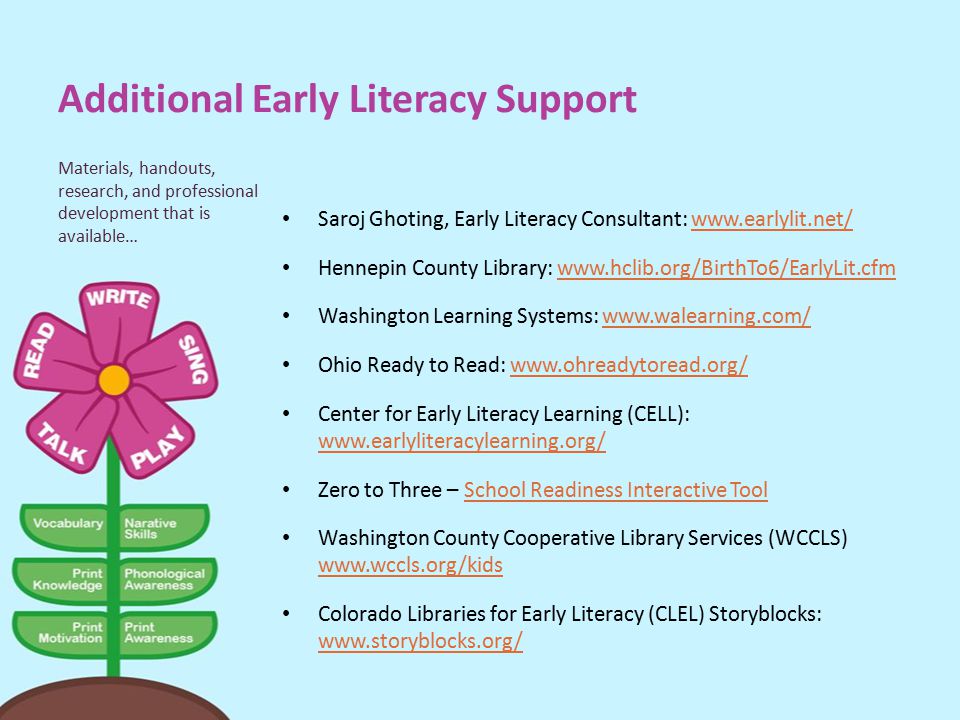 When you read, talk or play with your child, you are stimulating the growth of his brain and the building of those connections that will become the building blocks for learning to read. Brain development research shows that reading aloud to your child every day enhances their brain's ability to develop language, reading and writing abilities, and is the single most important thing you can do to prepare your child to learn to read. nine0003
When you read, talk or play with your child, you are stimulating the growth of his brain and the building of those connections that will become the building blocks for learning to read. Brain development research shows that reading aloud to your child every day enhances their brain's ability to develop language, reading and writing abilities, and is the single most important thing you can do to prepare your child to learn to read. nine0003
According to a survey of kindergarten teachers conducted in the fall of 2006 by the Oregon Department of Education, 19.4% of Multnomah County children entered kindergarten “unprepared for success” mainly because they lacked the necessary language and pre-school skills. reading. Experts now know that
- Development of language and literacy skills begins at birth.
- Children develop most of their learning potential in their first three years of life when their brains grow to 90 percent final adult volume.
Our mission is to encourage all adults who have significant contact with children aged 0-5 to talk and read to them to help them succeed both in school and in life.
Six habits of early literacy | Multnomah County Library
Young children need a variety of skills to become successful readers. The Reading Experts Group has identified six specific early literacy skills that are the foundation for further development of reading and writing skills. Research shows that the more of these skills children have when they first enter school, the better they understand reading guidelines in school. nine0003
Vocabulary
Vocabulary, that is, knowing the names of different things, is an extremely important skill that children need when they are learning to read. Most children, when they come to school, know between 3,000 and 5,000 words. Help expand your child's vocabulary by reading a variety of books, both fiction and non-fiction, and by naming everything the child sees around.
Craving for the printed word
Craving for the printed word is the child's interest in books and the pleasure he gets from reading books. A child with a craving for the written word likes to be read to, plays with books, pretends to write, asks to be read to, and loves to go to the library. Cultivate this love of books in your child by turning book reading into a special ritual, giving your child access to books and letting him know that you also like to read. Explain how you use reading in your daily life. nine0003
A child with a craving for the written word likes to be read to, plays with books, pretends to write, asks to be read to, and loves to go to the library. Cultivate this love of books in your child by turning book reading into a special ritual, giving your child access to books and letting him know that you also like to read. Explain how you use reading in your daily life. nine0003
Understanding the concept of writing
Understanding the concept of writing includes knowing that writing in English follows certain rules, such as writing from left to right and top to bottom, and that people who can read read the printed text on the page. An example of understanding the concept of writing is a child's ability to point to individual words on a book page. Your child's understanding of the concept of writing can be developed by pointing to words and reading them aloud wherever you see them - on signs, on labels, in grocery stores and in the mail. nine0003
Storytelling skills
Storytelling skills, that is, the ability to understand and tell stories and describe things, are important for a child to understand what they are learning to read.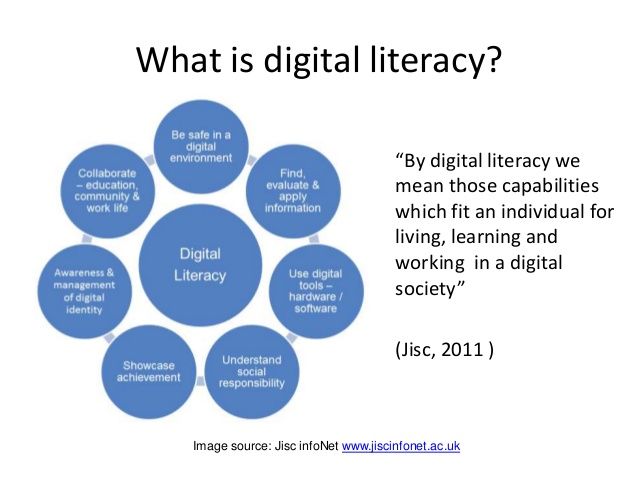 An example of a storytelling skill is a child's ability to tell what happened at a birthday party or when they went to the zoo.
An example of a storytelling skill is a child's ability to tell what happened at a birthday party or when they went to the zoo.
Help your child develop their storytelling skills by asking them to tell you about a book instead of just listening to you read it. Regularly ask your child to tell you about what he did. nine0003
Letter knowledge
Letter knowledge refers to knowing that letters have names and that they are different from each other, and that certain letters correspond to certain sounds. Letter knowledge is when a child can say what the letter B is called and what sound it corresponds to.
Letters can be developed through many fun activities that include reading and writing; for example, you can point to letters in the alphabet, in picture books or on signs and labels and name them. Talk with younger children about the shape of objects, and with preschoolers, you can try drawing letters and pictures in the sand.